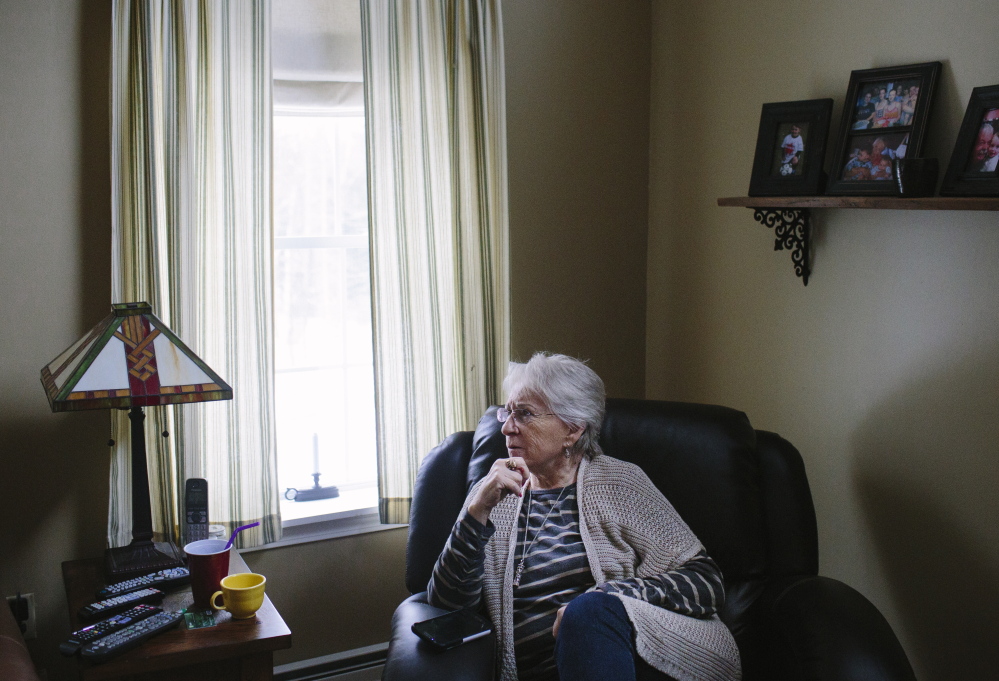The number of Maine children in foster care has surged since 2012, prompting the state to issue an appeal asking people to consider becoming foster parents.
Currently, 1,994 children are in foster care statewide, an increase from 1,506 in March 2012, according to the Maine Department of Health and Human Services. The state needs 100 families to sign up to care for older children, according to a statement released Monday by Mary Mayhew, Maine’s health and human services commissioner.
“Unfortunately, the number of children in need of safe, healthy and happy homes is far outpacing the number of families willing and able to help them,” Mayhew said in the statement. “Every child in Maine deserves a good home.”
The greatest need is homes for children ages 11 to 18.
South China resident Doreen Farrington said becoming a foster family has been “more rewarding than anything we’ve done.”
Farrington and her husband, Neil, currently care for four teenage girls, three of whom they have adopted, and have taken in about 75 Maine foster children – mostly teens – over the past 20 years. Despite some trying days, they would recommend the experience to other parents.
“They only want to be loved,” Doreen Farrington said. “Some days are challenging, but then tomorrow’s another day. Just try it. You might like it.”
Mayhew’s statement said the state is “asking for the public’s help” for more foster families. Although there are more than 1,300 licensed foster homes in the state, 500 do not currently host children. Families must be geographic matches with prospective foster children, and the foster parents must be able to meet the needs of the children they take on, according to the DHHS.
Farrington, 68, said people are wary of becoming foster parents, but she and her husband have nurtured many children who later became success stories – troubled children who went on to graduate from college or join the Marines.
“It’s scary for people to take in other children,” said Farrington, who first became a foster parent in San Diego in 1984. “It’s the fear of the unknown. But I hate to think what would have happened to these kids if we hadn’t been willing to help.”
She said the reimbursement is typically $22 to $36 per day, depending on the needs of the child.
The Farringtons also have two adult biological children.
The surge in foster children could be partly related to a 2012 change in state policy, when Gov. Paul LePage was quoted in the Press Herald as saying that the state was not removing enough endangered children from their homes. DHHS officials at the time agreed that the state had swung too far in the direction of trying to keep children with their families when circumstances might have warranted removal.
The state – mirroring a national trend – had been removing fewer children from homes as part of an effort to keep families together whenever possible. Research has shown that keeping families together, even troubled ones, is beneficial to the children, according to the National Coalition for Child Protection Reform, a Virginia-based advocacy group.
The state had removed about 3,200 children per year from their parents’ homes in the early 2000s. But by 2011, that number had declined to about 1,500, according to state officials quoted in a 2012 Press Herald article.
But LePage – who was a victim of domestic violence as a child – said in 2012 that the pendulum had swung too far, and that too many children were being left in potentially dangerous situations.
Regardless of what has caused the surge, there’s now a need for more foster parents, Mayhew said in her statement Monday.
“We need people who can open up their homes and families either on a temporary basis while a child’s parents resolve their own issues, or on a permanent basis when children need to become part of a new forever family,” Mayhew said.
Farrington said the state “bends over backwards” to keep children with their families, or reunite them when the parents become more stable.
Bette Hoxie, executive director of Adoptive and Foster Families of Maine, said it’s difficult trying to find people willing to become foster parents, especially to children who are not related. Sometimes families will become foster parents to grandchildren, nephews, nieces or cousins, but are unwilling to take on unrelated children.
Hoxie said foster families don’t have to be traditional, two-parent households, which surprises many who might dismiss the idea.
“There’s this image that the program is more restrictive than it really is,” Hoxie said. “People think they’re too old, or because they’re single or divorced that they can’t be foster parents, and that’s not true.”
Joe Lawlor can be contacted at 791-6376 or at:
jlawlor@pressherald.com
Twitter: @joelawlorph
Send questions/comments to the editors.





Comments are no longer available on this story